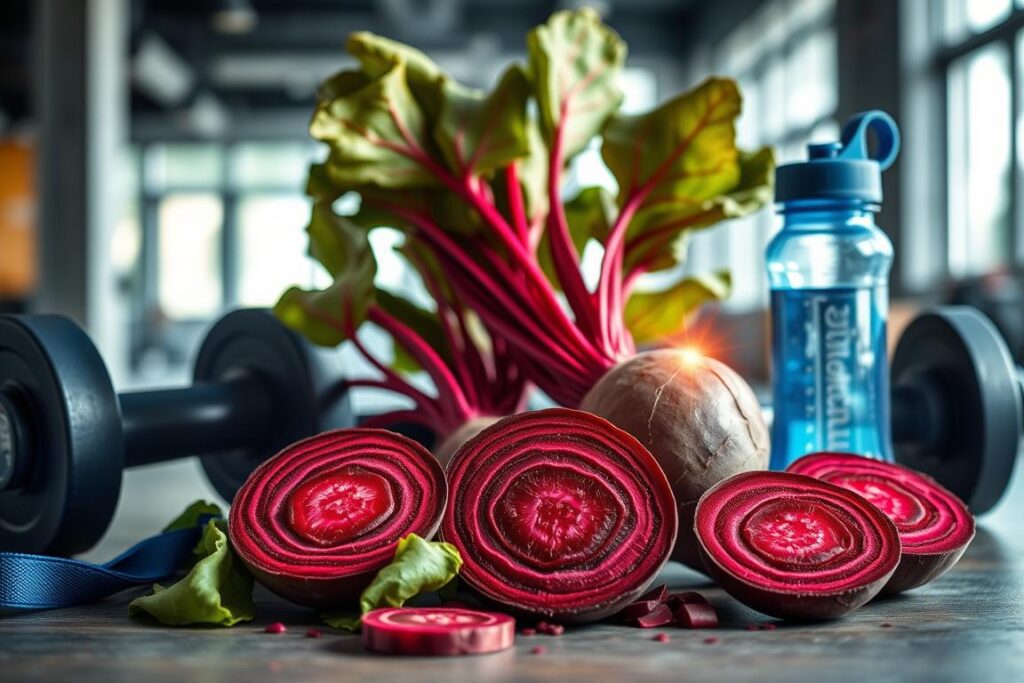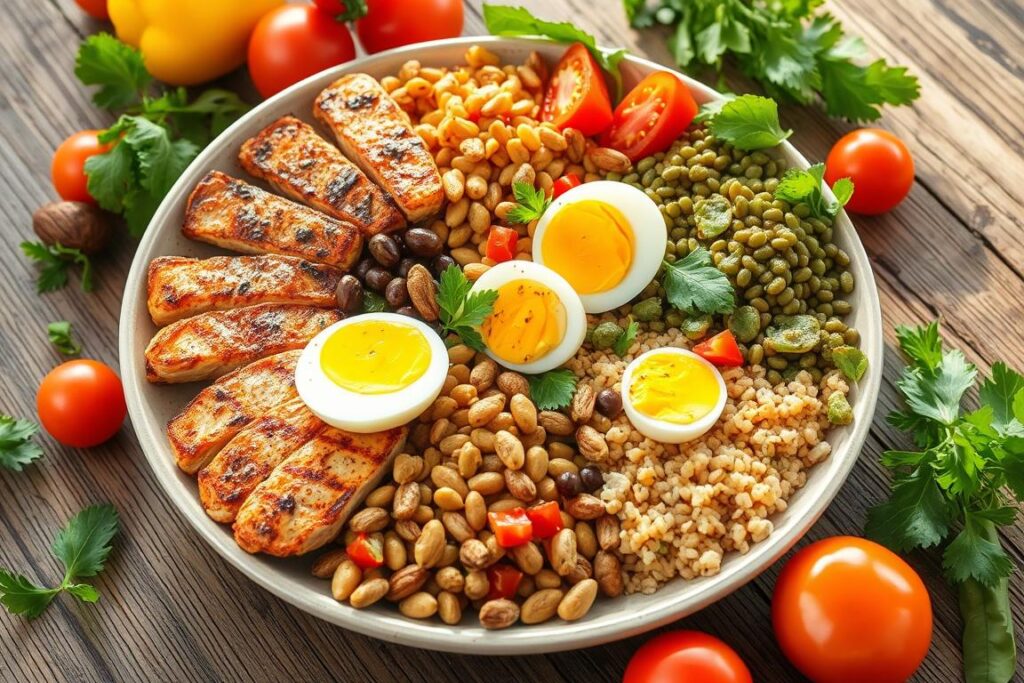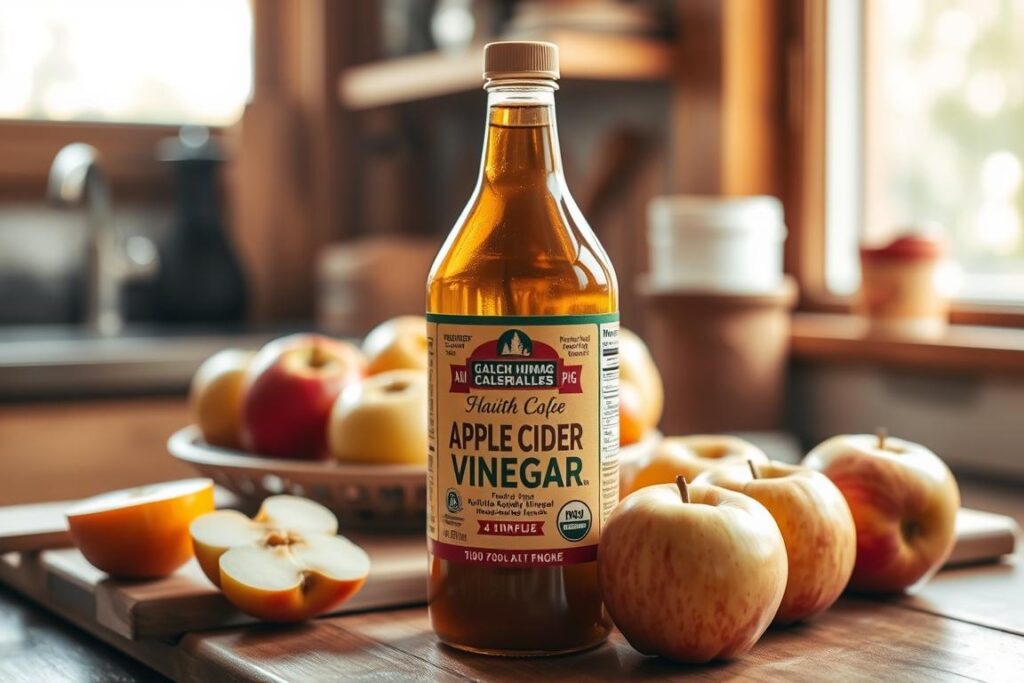What is the secret to improving the physical performance and the health node pre-workout? The beet may be the answer. It is rich in nitrate, flavonoids, vitamin C and beta-carotene. These nutrients offer benefits for the health and the physical performance.
THE beet is an excellent source of fiber, carbohydrates and minerals essential. This makes it a complete and healthy food for the pre-workout.
You benefits of beetroot include improving blood circulation and reducing blood pressure. It also increases oxygenation of the muscles. Therefore, it is popular among athletes and enthusiasts of health.
THE beet is rich in antioxidants and important nutrients. It contains iron, vitamins A, B6, C, potassium, magnesium, carbohydrates, protein, folic acid, zinc and soluble fiber. This makes it a valuable food for overall health.
To learn more about how beetroot can help, it is important to understand how it can be incorporated into pre-workout. This considering the health and nutrition as priorities.
Beetroot is a popular pre-workout food due to its benefits. It improves blood circulation and reduces blood pressure. Therefore, it is an excellent choice for those looking to improve their health and fitness. physical performance during pre-workout.
Nutritional Properties of Beetroot
Beetroot is a food full of nutritional properties. It has many nitrates, flavonoids, vitamin C and beta-carotene. It is also rich in fiber, carbohydrates and minerals important, such as potassium, magnesium and iron.
To the vitamins beetroot, such as vitamin C and folic acid, are very important. They help prevent diseases and maintain health. Beets also have many minerals, such as manganese, zinc and phosphorus, essential for the body.
Some of the main nutritional properties of beetroot include:
- High concentration of nitrate, which converts into nitric oxide in the body, improving blood flow and oxygen delivery to the muscles.
- Rich in fiber, which helps regulate the intestines and increases satiety.
- Source of natural carbohydrates, which provide quick and sustained energy.
- Good source of vitamins and minerals essentials such as vitamin C, potassium and magnesium.

Beetroot is a complete and healthy food. It can be consumed in many ways, such as juice, salad or cooked. With its rich nutritional composition and nutritional properties, is a great addition to a balanced diet.
The Benefits of Beetroot Pre-Workout
Beetroot is great for those who exercise. It improves blood circulation, lowers blood pressure and helps oxygenate muscles.
This root improves the blood circulation. This helps in physical performance and reduces fatigue. It is rich in magnesium and potassium, essential for muscle contraction and preventing cramps.
The advantages of consuming beetroot pre-workout There are many. They include:
- Increase in muscular endurance during high intensity physical activities
- Improved efficiency of the cardiovascular system
- Reduction of muscle fatigue due to vasodilation
- Increased oxygenation of muscles

Beetroot is essential in pre-workout. It improves the physical performance. Furthermore, the beet powder contains antioxidants that fight free radicals during exercise.
How Beets Boost Physical Performance
Beetroot is a food that can improve physical performance in several ways. It increases the production of nitric oxide. This improves the vasodilation and helps to oxygenate the muscles. Thus, it increases the muscular endurance and reduces fatigue.
Some benefits of beetroot for the physical performance they are:
- Increased production of nitric oxide, improving the vasodilation and oxygenating the muscles
- Improvement of muscular endurance and reduction of muscle fatigue
- Increased blood flow and oxygenation of muscles
Studies show that beetroot can improve the performance of athletes in 5 to 10% in endurance activities. In addition, it is rich in antioxidants and natural anti-inflammatories. This helps prevent injuries and diseases.
To take advantage of the benefits of beetroot, it is good to consume 500 mL of beetroot juice or 200g of beetroot. This provides about 8g of nitrate. It is recommended to do this 1 to 2 hours before training.
| Benefit | Description |
|---|---|
| Increased production of nitric oxide | Improvement of vasodilation and increased oxygenation of muscles |
| Improvement of muscular endurance | Reduction of muscle fatigue and increase in physical performance |
| Increased blood flow | Improved muscle oxygenation and reduced muscle fatigue |
Best Time to Eat Beets
The right time to eat beets is essential. This helps you reap the benefits. Knowing when to eat beets improves nutrient absorption and physical performance.
Studies show that the best time to eat beetroot is 30 minutes to 1 hour before training. During this time, the body prepares for the activity. Therefore, beetroot is better digested and absorbed, improving performance and reducing muscle fatigue.
Some benefits of beets include:
- Increased physical resistance
- Reduction of muscle fatigue
- Improved cardiovascular health
- Increased collagen production
To get these benefits, it is recommended to eat 100 to 250 grams of beets per day. This is equivalent to 1 to 2 medium beets or 1 to 2 cups of cooked or grated beets. It is important to consume beets 1 to 2 hours before exercising for better nutrient absorption.
In short, the moment of consumption of beets is crucial. Eating beets 30 minutes to 1 hour before training improves physical performance and reduces muscle fatigue. It is a great choice for pre-workout.
| Benefit | Description |
|---|---|
| Increased physical resistance | Beetroot can increase physical endurance by up to 16% during high-intensity exercise |
| Reduction of muscle fatigue | Beetroot can reduce muscle fatigue during and after training |
| Improved cardiovascular health | Beets may lower blood pressure and improve cardiovascular health |
Ways to Consume Beetroot Before Training
Beetroot is versatile and can be eaten in many ways. It is great for those who want something quick and easy. natural juice Beetroot juice, for example, is light and healthy, with around 40 calories per 100 ml glass.
THE beet powder is another popular option. It can be added to smoothies or other foods. This brings nitrates and antioxidants in a concentrated form. concentrated supplements are a convenient alternative for those looking for the efficiency of beetroot.
Advantages of Natural Juice
Beet juice is rich in nitrates. These nitrates are converted into nitric oxide in the body. This improves circulation and oxygenation of the muscles.
Studies indicate that beetroot juice before training can increase performance by up to 7%.
Benefits of Beetroot Powder
THE beet powder It is rich in antioxidants. It contains flavonoids and vitamin C, which fight free radicals. In addition, it has glutamine, which helps in muscle recovery and strengthens the immune system.
In short, there are several ways to consume beetroot before training. Natural juice, beet powder and concentrated supplements are options. Each has its benefits and can be adjusted to the needs of each athlete. Choosing the best form of consumption can improve physical performance.
Recommended Dosage for Athletes
The dosage of beetroot for athletes is crucial. Studies show that 500 ml of juice or 3-6 beets per day are ideal. This varies depending on the physical activity and the athlete's goal.
Beetroot can be juice, powder or supplement. recommended dosage changes depending on the type of consumption. It contains nitrates, which improve blood circulation during exercise.
To improve performance, it is a good idea to consume 500 ml of beetroot juice or 200 g of beetroot 2 hours before exercise. This can increase the duration of the workout by 10% to 16%.
Some important points about the recommended dosage of beetroot to athletes include:
- 500 ml of beetroot juice or 3-6 beets per day;
- 200 g of beetroot, about 2 hours before exercising;
- Beetroot can be consumed in the form of natural juice, beet powder or concentrated supplements.
In short, the recommended dosage Beetroot is essential for athletes. It is important to know the right amount for each type of consumption and obtain the best results.
Contraindications and Side Effects
Beetroot is safe for most people. However, it can cause problems in some groups. This includes people taking certain medications, such as blood thinners and high blood pressure medications.
Some may feel side effects, such as stomach problems. This is due to the high fiber and oxalic acid content. In addition, it can be dangerous for those with kidney or liver disease.
Groups of risk
Groups that should be careful with beets are:
- People with kidney or liver disease
- Individuals with high or low blood pressure
- People with anxiety disorders or depression
- Pregnant or lactating women
- Minors
Possible Drug Interactions
Beetroot can affect certain medications, such as:
| Medication | Interaction |
|---|---|
| Anticoagulants | Beets may increase the risk of bleeding |
| Blood pressure medications | Beetroot may interfere with the effectiveness of the medication |
If you belong to a risk group or are taking medication, talk to a doctor. It is crucial to know about the contraindications and drug interactions. This way, you avoid side effects bad.
Effective Combinations with Other Foods
Beetroot can be combined with other foods to enhance its benefits. Some efficient combinations include beets with orange juice, watermelon or ginger. These combinations can help improve nutrient absorption and reduce inflammation.
It is important to know the efficient combinations of beets with other foods. This way you can maximize its benefits. The date suggests that beets can be added to practical recipes, such as salads, smoothies or soups, to increase their nutritional value.
Nutritional Synergies
To the nutritional synergies Combining beets with other foods can be very beneficial. For example, combining beets with orange juice can help improve nutrient absorption and reduce inflammation.
Practical Recipes
There are many practical recipes that include beetroot as the main ingredient. Some options include:
- Beetroot salad with orange juice and ginger
- Beetroot smoothie with watermelon and yogurt
- Beetroot soup with carrots and onions
These practical recipes can be a great option for those looking for efficient combinations and nutritional synergies with the beetroot.
| Revenue | Ingredients | Benefits |
|---|---|---|
| Beetroot salad | Beetroot, orange juice, ginger | Improves nutrient absorption and reduces inflammation |
| Beetroot smoothie | Beetroot, watermelon, yogurt | Increases nutritional value and helps reduce inflammation |
| Beetroot soup | Beetroot, carrot, onion | Helps improve nutrient absorption and reduce inflammation |
Scientific Studies and Evidence
You scientific studies show that beetroot is good for your health and body. It contains inorganic nitrate, which helps with physical performance. In addition, beetroot can lower blood pressure and improve kidney function.
Some evidence include:
- Increased bioavailability of nitric oxide, which improves vasodilation and mitochondrial function.
- Reduction in blood pressure by up to 5 millimeters of mercury with the consumption of two beets per day.
- Improvement in physical endurance by up to 16% during high intensity exercise.
Those scientific studies and evidence prove the benefits of beetroot. It is a great choice for those who want to improve their performance and well-being.
Conclusion
Beetroot is a valuable pre-workout ingredient. It brings many benefits to the body and health. With nitrate, flavonoids, vitamin C and beta-carotene, beetroot improves circulation and muscle oxygenation.
Studies show that drinking beet juice before exercise is very helpful. Athletes can run further, have more strength and recover faster. The antioxidant and anti-inflammatory properties also help prevent injuries and illnesses.
Using beetroot before training can be very beneficial. It is natural and helps improve physical performance. When used correctly, beetroot can be a great ally in your exercise routine.


